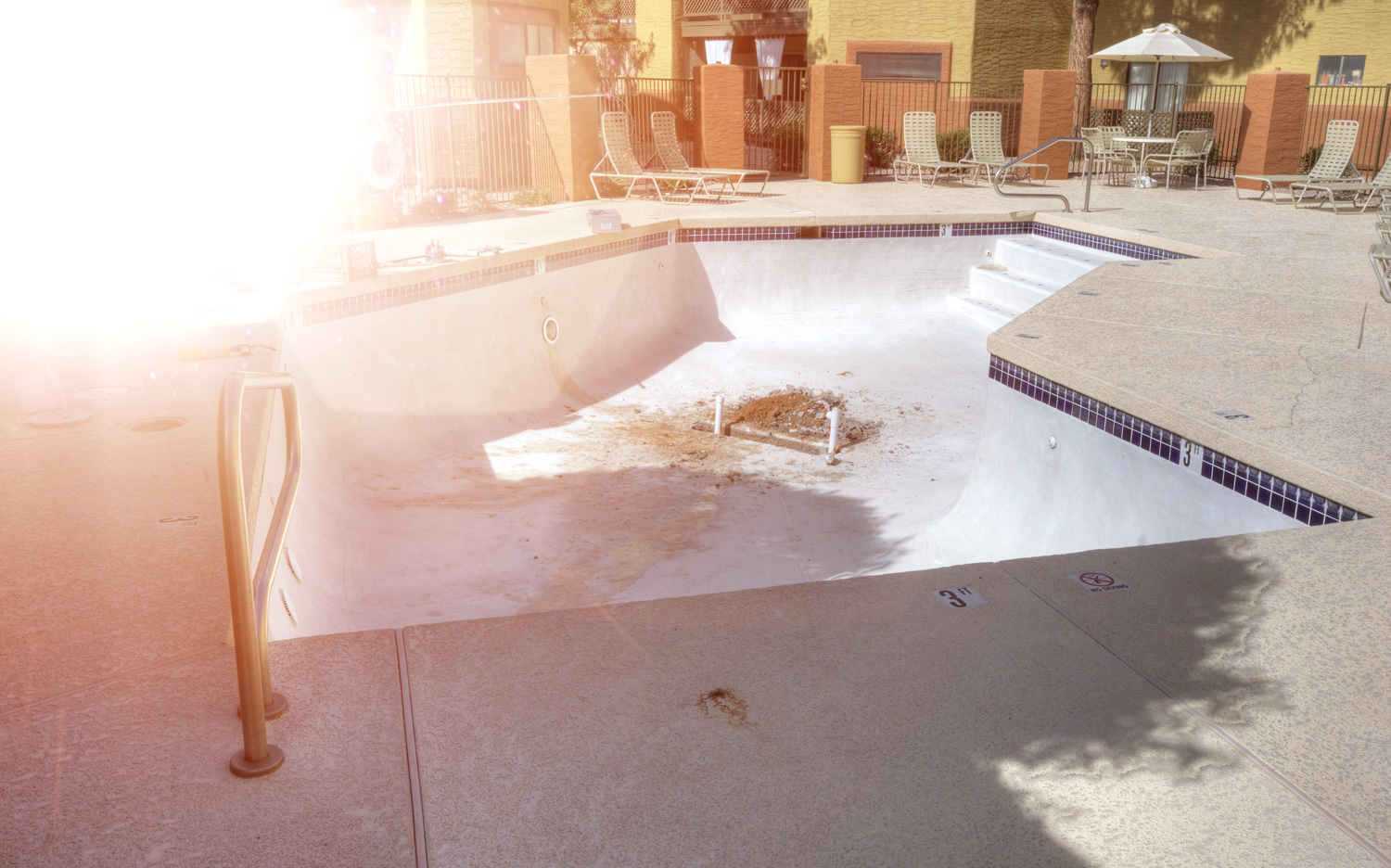

You installed a concrete pool because you wanted the most solid pool you could get. And, if you managed to find a reliable pool installer, that’s exactly what you got. Concrete is by far the most durable of all the different materials used for pool construction.
But the durability of concrete can create a false sense of security for homeowners who install concrete pools. It’s not that their faith in concrete’s strength is misplaced, It’s just that there are forces at work that are even more powerful than concrete.
Collectively, those forces are called Mother Nature.
You might be able to see a quick example of what we mean fairly soon in your own concrete pool. It’s been a cold winter here in York Region, but it hasn’t been without it’s warmer times. That fluctuation between deep freezes and milder thaws can cause havoc for a concrete pols and decks, especially older ones that were already cracked.
Just like it does to sidewalks, driveways and just abut any other concrete structure that is built on the ground, water can seep below it, either through cracks or by shifts in the groundwater beside or beneath the concrete structure.
Groundwater is present everywhere, even in deserts, but it’s not the ground water itself that damages your pool (unless you have a lot of ground water). But, regardless of where the water came from, when it gets below your deck or pool, and it freezes, it will expand and put pressure on the concrete around it.
Let’s not make concrete out to be a weakling in the presence of a bit of frozen water. If you have a new concrete pool, you can likely rely on many years of worry-free enjoyment.
But, back to the winter we’re freezing through here Southern Ontario, it’s a bad one for more reasons than the persistent sub-zero temperatures. There’s also been lots of snow. While that’s nice to look at and ski over, it means that, in those few times where the temperatures rose above zero, the melting snow and ice means more water may have gotten below and around your pool and deck. And when the temperatures once again plunged below zero, it froze the ground to deeper levels.
When the increased levels of water from melted snow freezes at a deeper level than usual due to the sustained double-digit below-freezing temperatures, it can add an exponential amount of pressure to your pool and deck versus a normal winter (whatever that is).
While all that extra water freezing once might not cause any cracking, every time it thaws and refreezes, the pressure it exerts on your pool is released and reapplied. That exposes your pool to a ‘push and pull’ effect that can, over time, cause cracks in your pool walls and/or deck.
Did You Keep Water in Your Pool?
Speaking of groundwater, another problem from all the snow we’ve had this winter will happen during spring run-off. While a lot of snow melted in one or two to the thaws, the runoff may not have drained away completely before the
ground refroze (if it even thawed). That means, with the added snow we’ve had since the last thaw, plus what’s frozen in the ground, there could be higher levels of groundwater this spring.
That shouldn’t be a problem for concrete pool owners, if you keep the water in your pool throughout the winter. If you’ve ever wondered why you’re advised to keep water in the pool, it’s because concreate floats. With no water in your pool, and lots of water in the ground around the pool, the pool can actually be lifted (or floated) by the pressure from the groundwater
Of course, you’re supposed to float on the water in the pool, but the pool isn’t supposed to float on the water outside the pool.
If you’d like to learn more about how to prevent damage to your concrete pool this spring, get in touch with us here at Aveco Pools. We’re concrete pool experts.